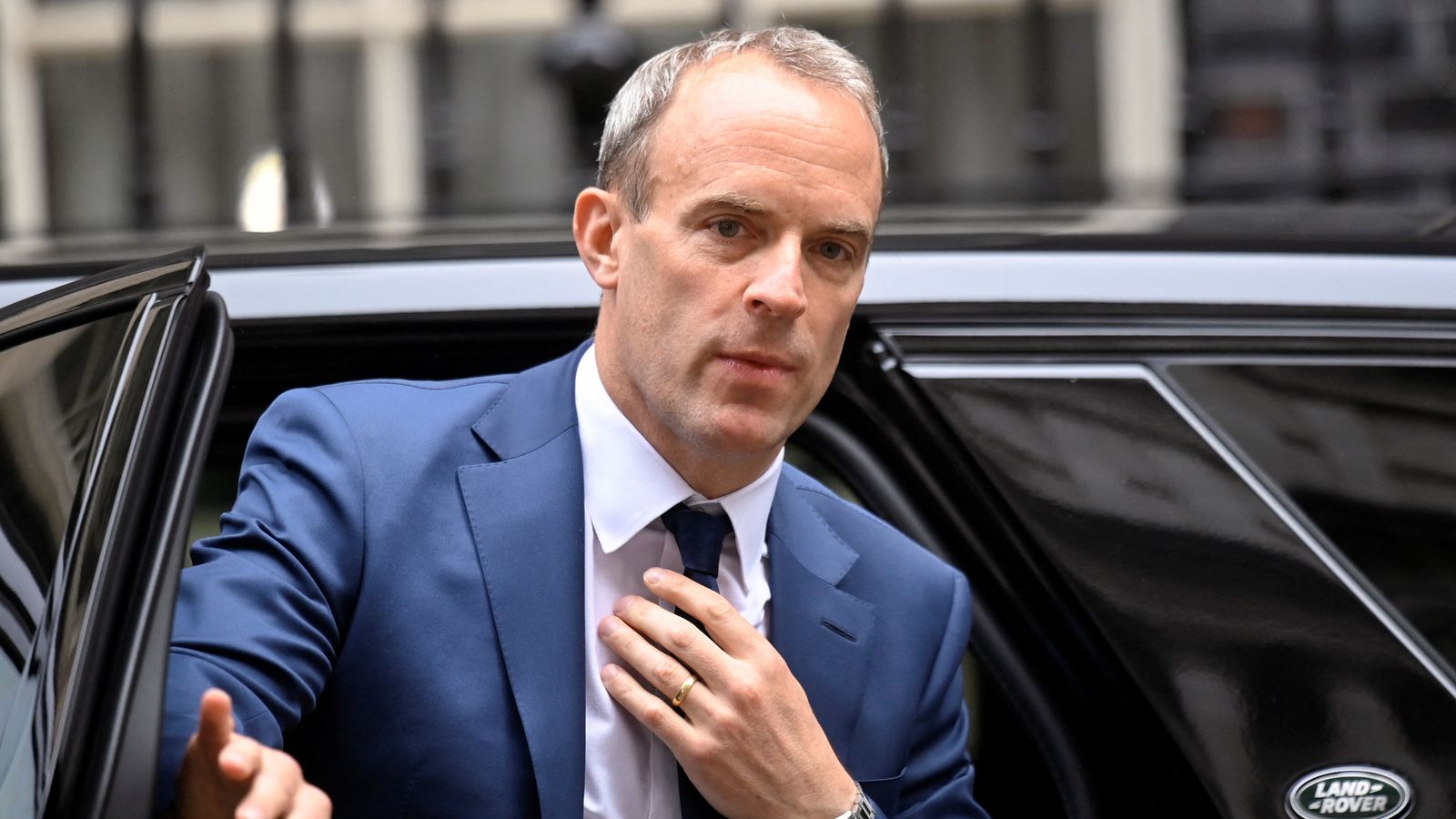Dominic Raab says he left office with his ‘head held high’ after resigning over bullying report

Dominic Raab says he left office with his “head held high” after resigning over a report which found he had bullied staff.
The former deputy PM believes he was forced out by civil servants who were opposed to Brexit and his attempts to reform human rights legislation.
A report conducted by Adam Tolley KC upheld two out of eight bullying complaints levelled at the senior Tory, finding that he had “acted in a manner which was intimidating” and “persistently aggressive”.
Though Mr Raab resigned following the reports publication, he told the Mail on Sunday he felt he left with his “integrity intact”.
He said: “There was Brexit, I was driving human rights reform, all of these things are counterintuitive to the culture of the civil service.
“A vast majority were faithful, professional, loyal, excellent, behaved with all the professionalism that you’d expect. But I didn’t take no for an answer.
“Adam Tolley found that I’d never once lost my temper with anyone, I’d never shouted at anyone, I’d never sworn at anyone [but] I think it was my persistence and perseverance which ultimately precipitated these claims.”
In the immediate aftermath of his resignation he lashed out at what he called “activist civil servants” who were able to “block reforms or changes through a rather passive-aggressive approach” when dealing with ministers.
Other senior Tories also leaped to his defence, with Jacob Rees-Mogg telling Sky News he felt Mr Raab’s resignation was “unnecessary” and branded the report a “blizzard of snowflakes”.
Advertisement
Please use Chrome browser for a more accessible video player
2:01
Rees-Mogg defends Raab over bullying report
The former leader of the house added: “The main complaint it was upheld relates to an ambassador, an extraordinarily senior figure who was deliberately going against government policy in Gibraltar, an issue of the highest sensitivity and all.
“All It seems that Mr Raab did was raise the question of the Civil Service code, which wasn’t being followed. Now, we cannot have a situation where ambassadors can ignore government policy, can freelance, can suggest that foreign forces should go onto British sovereign territory and not at least be held to account.”
Politicising the civil service
Mr Raab’s allegations come amid rumours the government is planning to make it easier for ministers to “politicise” the civil service by bringing in officials with “overt political affiliations”.
Writing in the Observer, former cabinet minister Francis Maude, says the government needs to get “more robust and less mealy mouthed about politicisation”.
He is expected to report his recommendations, which include external auditing of civil servants, to the prime minister in the near future.
Please use Chrome browser for a more accessible video player
1:47
The inquiry into claims of bullying by Dominic Raab has exposed
Read more:
The findings explain why Raab’s letter was full of anger
The rise and fall of the karate black belt who briefly ran the country
Allegations against Dominic Raab explained
However, a former senior civil servant who worked with Mr Raab said he has seen no evidence to support the ex-deputy prime minister’s accusation that Civil Service “activists” were working against him.
Lord Simon McDonald, who was permanent secretary of the Foreign Office for five years, said there was no civil service “agenda” and the “minister’s behaviour” was the issue.
Lord McDonald, who gave evidence to Mr Tolley’s bullying investigation to provide background context for complaints against Mr Raab, said he “saw no evidence” of what he was alleging.
The peer told BBC Radio 4’s Today programme: “I disagree strongly with Mr Raab. I think all the civil servants I saw working for Dominic Raab worked very hard for him in the way they are required to do.
“There is no civil service activism, there is no civil service passive aggression, there is no separate civil service agenda.”